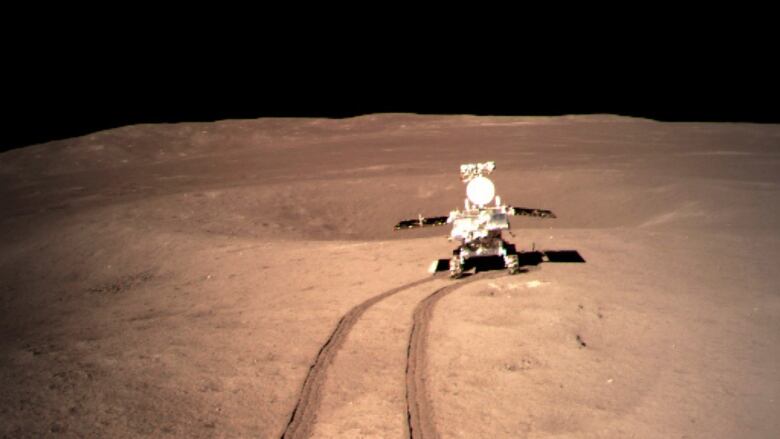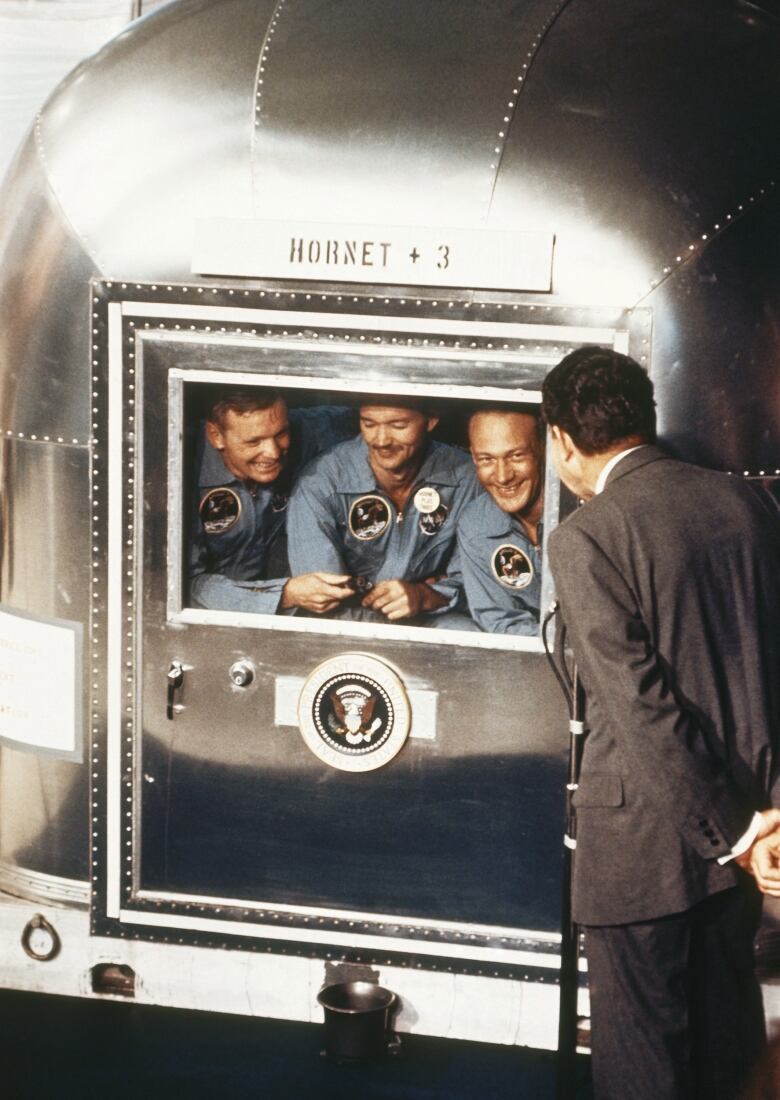Moon 2.0: Why the next phase of lunar development won't be anything like Apollo
Possibilities include long-term settlements, resource extraction and missions to Mars

Written by Brent Bambury
When humans return to the moon as soon as 2024, their missions will be vastly different from those of the Apollo pioneers.
The Apollo program changed the world without significantly changing the surface of the moon,but the next phase of lunar development will be multinational, long-term and commercially driven.
According to Jack Burns,director of the NASA-funded Network for Exploration and Space Science, the countries and companies going will develop unexplored lunar territory, mine resources and make the moon a base for future space exploration.
"I think it certainly was exciting in 1969," said Burns on Day 6."It will be exciting again when we return."
It's Burns' job to dream up what can be done on the moon and he isn't theonly one dreaming.
China, Israel, India, Russia and the E.U. each have lunar programsand private companies are deeply involved as well.

When Apollo 11 landed on the moon on July 20, 1969, millions found it hard to believe the moon was accessible. Now, with decades of technological advancements, corporate interests see their own path to the moon andBurns approves.
"There are a dozen companies now that are looking at soft-landing payloads on the moon," Burns said. "I think in general it's exciting that the moon is so accessible, not only by NASA and other space agencies, but individual companies."
One of those companies is a funeral services company that intends to plant cremated remains on the moon.
"I'd like to be part of that," Burns said."At least some of my ashes I've told my family I want to be part of the moon permanently so we'll see how that goes."
Sustainable source of funding
Burns welcomes corporate interests on the moon for another reason:it promises stable funding for long-term lunar development.
The era of human-lunar contact is brief. Twelve Apollo astronauts walked on the moon, all of them between July 1969 and Dec. 1972.

It was also expensive. Even before the end of 1969, then U.S. president Richard Nixon was already planning to axe Apollo.
"The reason that [U.S. president]John Kennedy originally proposed to go to the moon was geopolitical. It was really to beat the old Soviet Union," Burns said.
"Once that was accomplished, what was left was a very expensive program as seen by ... Nixon. And it was taking up about 5per cent of the federal budget at that time," Burns recalled.
"So Nixon found it wasn't affordable any longer."
According to Burns, multinational co-operation takes the pressure off any one nation's treasury.
"This is now an international partnership that is taking place much like the international partnership with the International Space Station. And so the chance of having that be more sustainable and for us to stay is greater."
Mining the moon
If the Artemis mission of 2024 is successful in getting boots on the lunar ground, they won't be treading in Neil Armstrong's footprints.
"The Apollo landed in safe places, which you would expect given the technology of those days," Burns said.
The Artemis mission will dig into the water ice on the South Pole.
"We didn't know in those days how interesting the poles and the far side of the moon are. Really, just in the last decade, we discovered water ice at the poles."

Burns says lunar water could be a priceless commodity and the key to developing a lunar economy.
"Nearly 80 per cent of the mass of a typical launch is in rocket fuel," Burns said. "And the reason is that water in space is very much like petroleum is on the earth ... you can take the water and break up the molecules into hydrogen and oxygen, reassemble them, and make rocket fuel."
"If you don't have to bring the fuel to return, but rather you can mine it from the moon or ... even sell it to other companies or other countries on the moon, then you've got a kind of lunar economy that could begin and be very valuable for the future."
Live from the moon
NASA intends to put a space station that would be a permanent research vessel in lunar orbitby 2024and aims for a lunar surface base, possibly near the South Pole, by 2028.
"It could be very much like an Antarctic station where scientists go and stay for a few months to a year or more," Burns said.

"They'd do scientific investigations, and then even things like space tourism could be heating up in another decade. You could imagine plopping down $100,000and spending your summer vacation two weeks on the moon."
Or you could just stay home on Earth and watch lunar TV.
"Imagine a live television show weekly coming from the moon," Burns said."I mean all of those kinds of things could be possible and very different than what we saw in the 1960s."
To hear more from Jack Burns, download our podcast or click 'Listen' above.












_(720p).jpg)


 OFFICIAL HD MUSIC VIDEO.jpg)
.jpg)



























































































